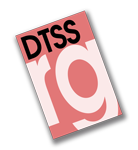La regulación de la información y la consulta de los trabajadores en la empresa nacional y transnacional. (RI §400147)

The regulation of employees’ information and consultation rights either in the nationwide undertaking or in the transnational undertaking -
Edurne Terradillos Ormaetxea
El estudio parte de la hipótesis de la demostrada importancia de la regulación de la información y consulta de los trabajadores en la empresa en cuanto derechos instrumentales al ejercicio de otros derechos laborales, como la negociación colectiva o el derecho a la adopción de medidas de conflicto colectivo. Con esa perspectiva, se analizan las más importantes Directivas comunitarias, y su transposición al Estado español, con un objetivo a medio plazo: demostrar que la transmisión de la información y el desarrollo de la consulta entre el ámbito de dirección apropiado de la empresa y el ámbito de representación de los trabajadores seleccionado redunda, no ya sólo en el esclarecimiento del perímetro de la empresa, que también, sino en la eficacia de aquellos derechos de participación de los trabajadores. El objetivo a largo plazo, que se demuestra al final del trabajo es el siguiente: a menos que la ley y su fuente originaria enmarquen convenientemente los complejos empresariales que deban ser centros de imputación jurídica en cuanto a la obligación de informar y consultar a los trabajadores, las enmarañadas relaciones entre empresas convierten aquellos derechos en ineficaces.
I. MODELOS DE REGULACIÓN DE LOS DERECHOS DE INFORMACIÓN Y CONSULTA EN LA EMPRESA EN LA NORMATIVA COMUNITARIA.- II. EL CONTENIDO DE LOS DERECHOS DE INFORMACIÓN Y CONSULTA Y LA CORRESPONSABILIDAD ENTRE FUENTE Y DESTINATARIOS DE ESOS DERECHOS EN LA EMPRESA TRANSNACIONAL.- III. LA PREVISIÓN DE LA INFORMACIÓN Y LA CONSULTA EN LA EMPRESA NACIONAL CON ESTRUCTURA SIMPLE.- IV. LOS PROBLEMAS QUE PRESENTA LA TRANSMISIÓN DE LA INFORMACIÓN Y LA REALIZACIÓN DE LA CONSULTA EN LA EMPRESA DE GRUPO Y EN LA EMPRESA-RED DE ÁMBITO NACIONAL.
The study is based in the following hypothesis: the information and consultation rights have a narrow relationship with other labour rights, as the collective bargaining and the strike. From this hypothesis onwards, the author analyses the most important European Directives in this field and its transposition in Spain. The criterion used for that relies on the importance to connect, on one hand, the appropriate level of management -who is concerned to develop the information and consultation- and, on the other hand, the suitable level of workers’ representative body. If those levels are in connection, it is sure that the perimeter of the undertaking is going to be clearer, but also it is no doubt that the information and consultation rights will be truly effective. Given that, the work is aimed at showing the importance of identifying legally the undertakings’ complex obliged to inform and consult its workers. Unless the Law does that, the information and consultation rights became ineffective.
I. THE INFORMATION AND CONSULTATION RIGHTS IN THE EUROPEAN LAW.- II. THE INFORMATION AND CONSULTATION RIGHTS AND THE CONNECTION BETWEEN THE SOURCE AND THE DESTINATION OF THOSE RIGHTS IN THE TRANSNATIONAL UNDERTAKING.- III. THE INFORMATION AND CONSULTATION RIGHTS IN THE NATIONWIDE UNDERTAKING WITH SIMPLE STRUCTURE.- IV. PROBLEMS IN THE DEVELOPMENT OF THE INFORMATION AND CONSULTATION RIGHTS IN THE NATIONWIDE GROUPS OF UNDERTAKINGS AND NETWORK UNDERTAKINGS.
